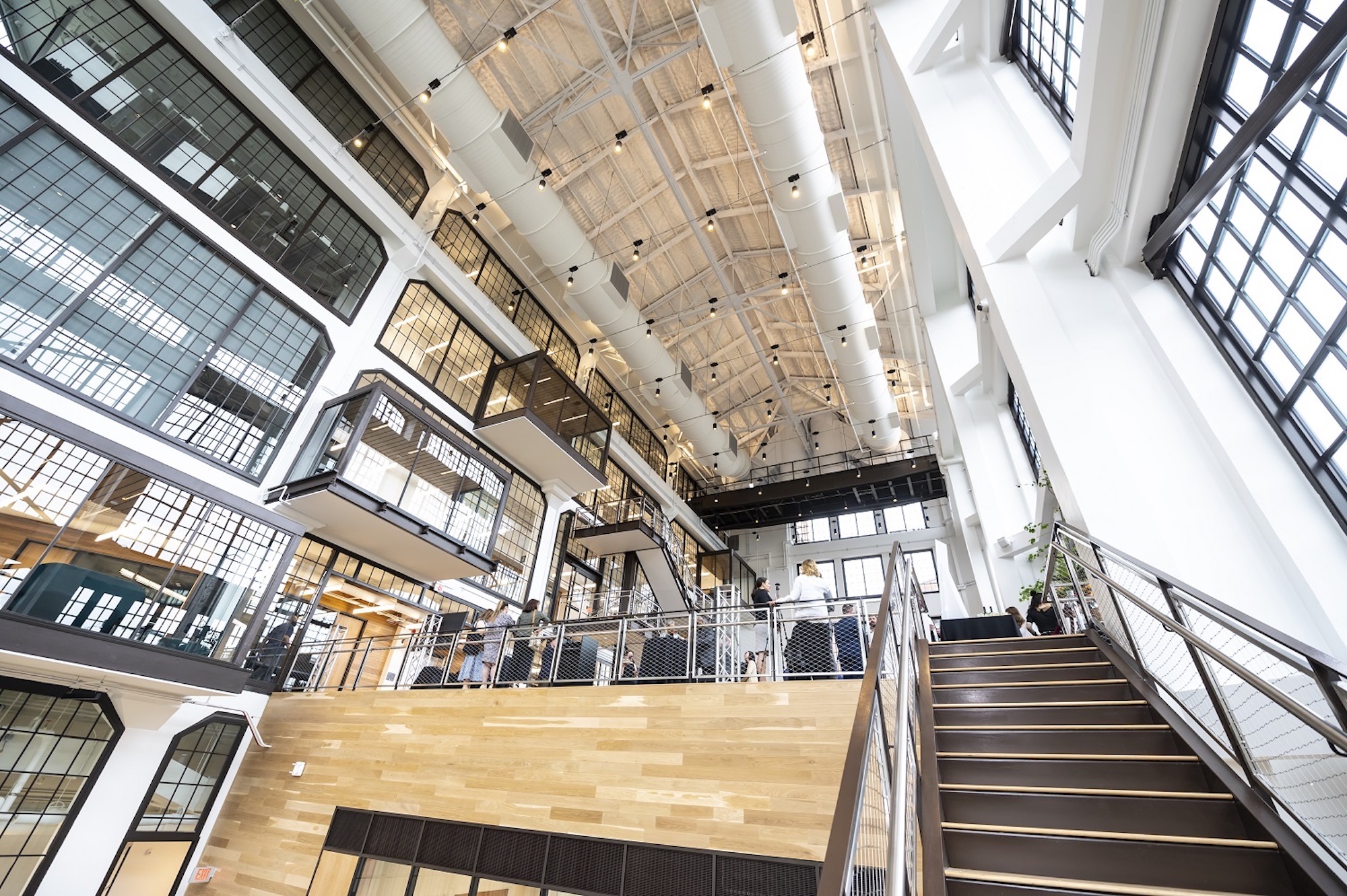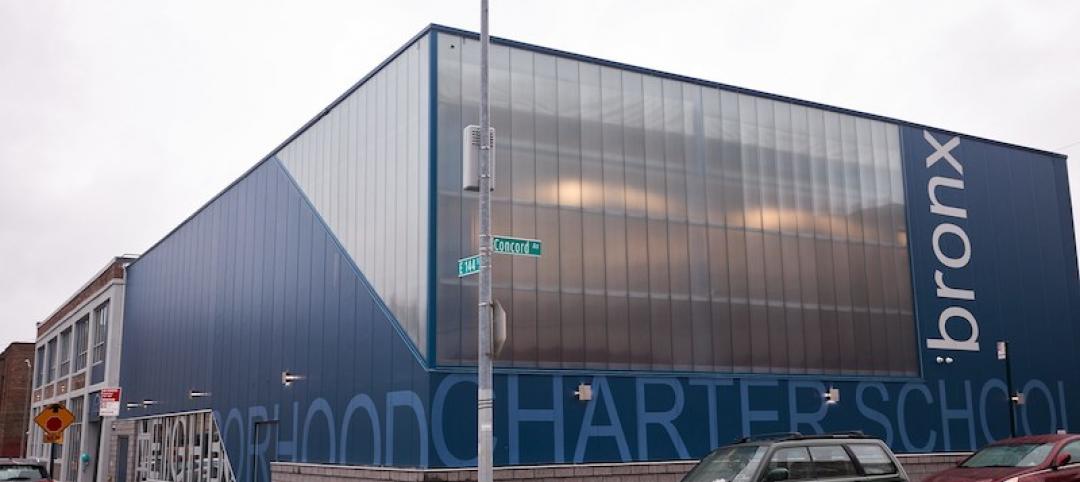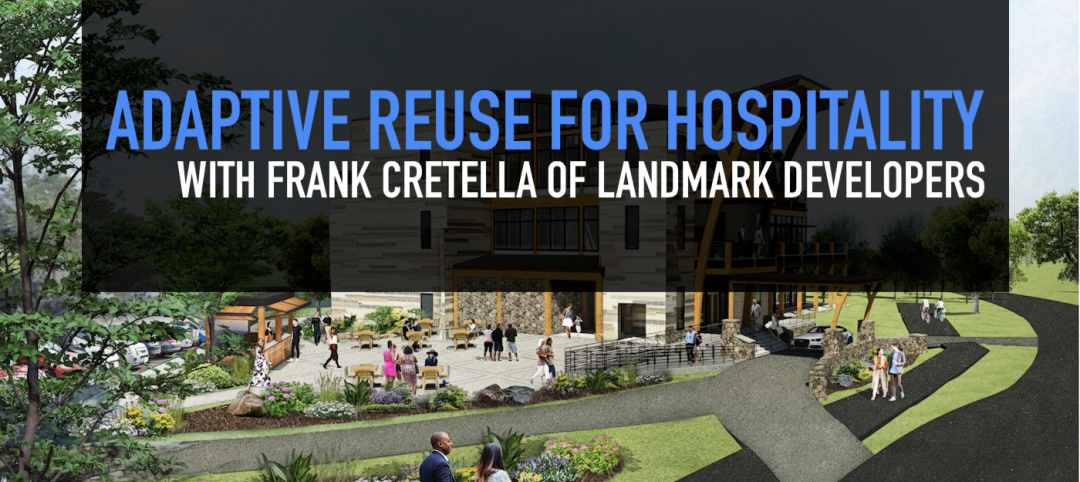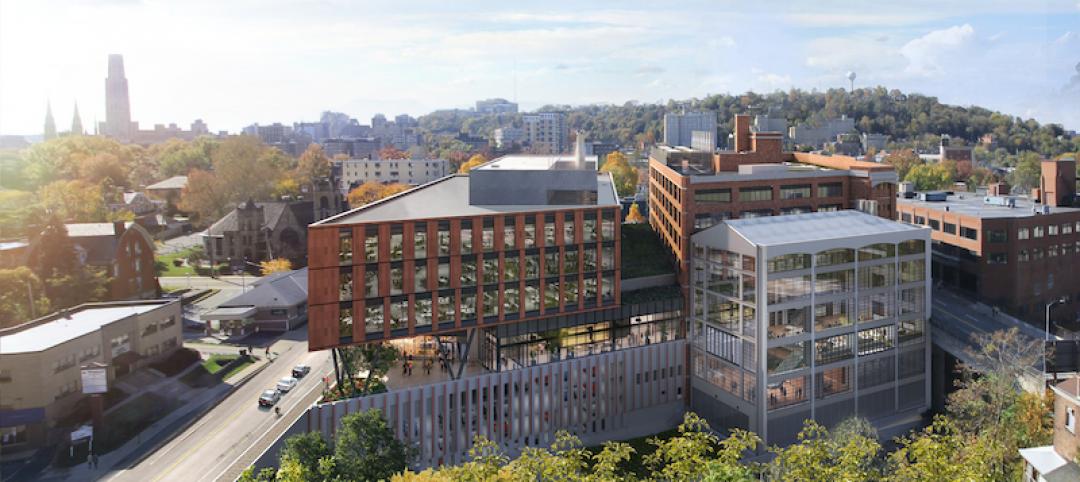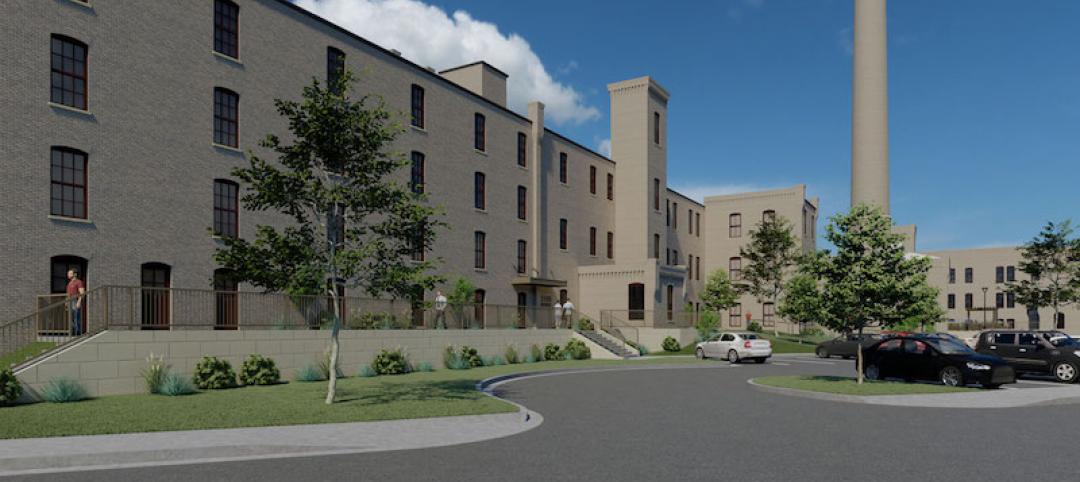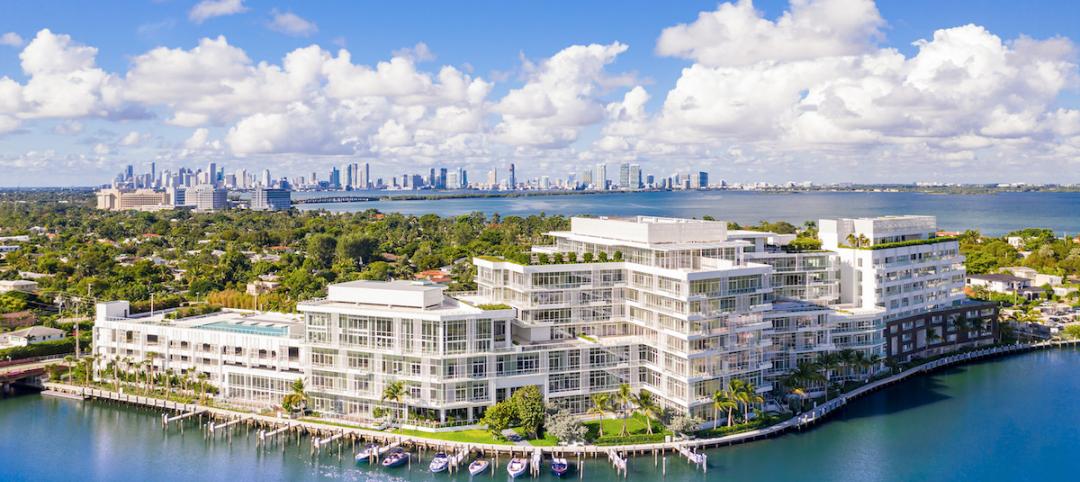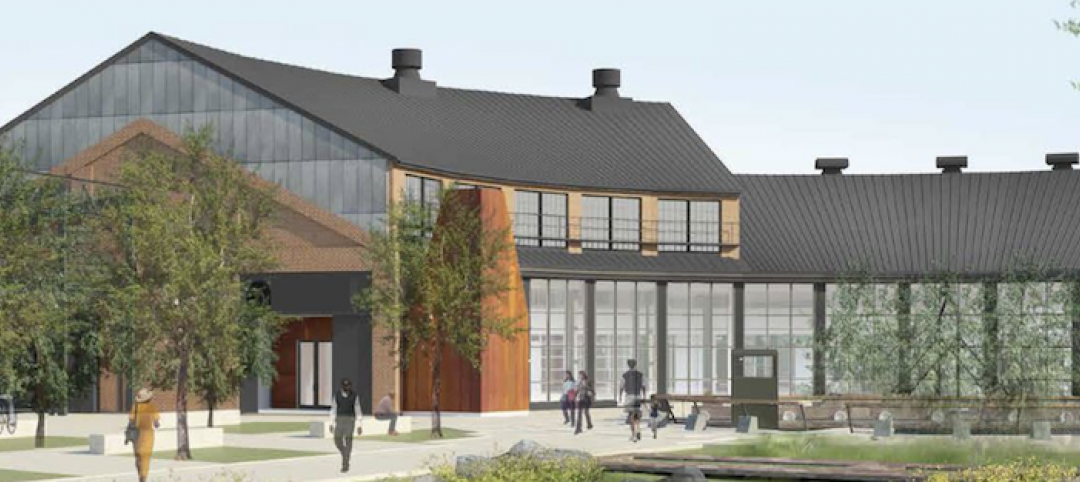Today, The Assembly is a state-of-the-art life sciences research and innovation facility. But the century-old building began as a Model-T assembly line and showroom for the Ford Motor Company in the Bloomfield neighborhood of Pittsburgh.
Developed by Wexford Science & Technology, The Assembly opened earlier this year and more recently achieved LEED Gold certification for its design, construction, and operations practices, which focused on improving environmental and human health. The Assembly is the University’s 18th project to earn a LEED certification since 2005, when it received its first LEED Gold certification for the McGowan Institute of Regenerative Medicine.
The newest LEED Gold certification aligns with the school’s and the community’s larger sustainability efforts, including the Plan for Pitt, the Pitt Sustainability Plan, and a commitment to third-party certified green buildings. The university intends to reach carbon neutrality both on- and off-campus by 2037.
Designed by ZGF and built by Turner Construction, The Assembly diverted nearly 90% of construction waste from the landfill. Of its renovation materials, 56% were regional and 32% recycled. Close to public transit, The Assembly provides bicycle storage and changing rooms, as well as 30 electric vehicle chargers.
The Assembly is part of a 355,000-sf life science redevelopment complex in the former Ford plant. The research taking place at The Assembly includes cancer biology and immunology, among other areas.
Constructed in 1915, the Ford Motor Company Assembly Plant housed Model-T production, showroom, and sales until 1932. As a dealership, it remained in business until 1953, then sat largely vacant. In 2018, the original building was named to the National Register of Historic Places, and the University of Pittsburgh and Wexford acquired the property and announced redevelopment plans.
On the Building Team:
Developer: Wexford Science & Technology
Capital partner: Ventas
Design architect and architect of record: ZGF Architects
MEP engineer: AEI
Structural engineer: Thornton Tomasetti
Construction: Turner Construction
Related Stories
Adaptive Reuse | Aug 25, 2021
The first net-zero hotel in the U.S. is nearing completion in Connecticut
Solar arrays will provide the electricity for the Hotel Marcel, whose name recalls the building’s original designer.
Adaptive Reuse | Aug 13, 2021
Developers are repositioning vacant space as charter schools
Transwestern is working with the National Alliance of Public Charter Schools to provide a turnkey solution.
Hotel Facilities | Jun 18, 2021
Adaptive reuse for hospitality, with Frank Cretella of Landmark Developers
In an exclusive interview for HorizonTV, Landmark Developers' President Frank Cretella talks about the firm's adaptive reuse projects for the hospitality sector. Cretella outlines his company's keys to success in hospitality development, including finding unique properties and creating memorable spaces.
Adaptive Reuse | Jun 2, 2021
An old Ford factory in Pittsburgh is being adapted to become a biomedical research facility
This is the latest step in the city’s post-industrial resurgence.
Adaptive Reuse | Apr 15, 2021
The Weekly Show, Apr 15, 2021: The ins and outs of adaptive reuse, and sensors for real-time construction monitoring
This week on The Weekly show, BD+C editors speak with AEC industry leaders from PBDW Architects and Wohlsen Construction about what makes adaptive reuse projects successful, and sensors for real-time monitoring of concrete construction.
Adaptive Reuse | Feb 24, 2021
Adaptive reuse project brings co-living space to Los Angeles’s Hancock Park
Lorcan O’Herlihy Architects is designing the project.
Adaptive Reuse | Feb 14, 2021
Three adaptive reuse projects will add housing in Wisconsin
Historic tax credits helped pave the way, but preservation required creative solutions.
Multifamily Housing | Jan 20, 2021
Abandoned Miami hospital gets third life as waterfront condo development
The 1920s King Cole Hotel becomes the Ritz-Carlton Residences Miami in the largest residential adaptive reuse project in South Florida.
Adaptive Reuse | Dec 17, 2020
A train engine repair building is turned into an innovation center that’s part of a massive riverfront redevelopment in Pittsburgh
The adaptive reuse of the Roundhouse is the latest step forward for Hazelwood Green.
Adaptive Reuse | Oct 26, 2020
Mall property redevelopments could result in dramatic property value drops
Retail conversions to fulfillment centers, apartments, schools, or medical offices could cut values 60% to 90%.


